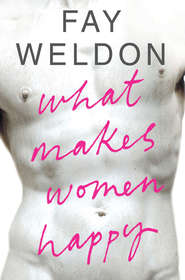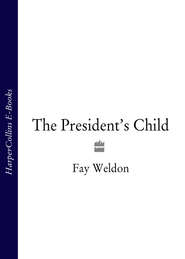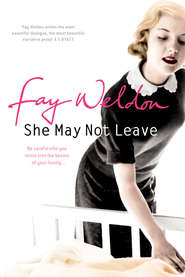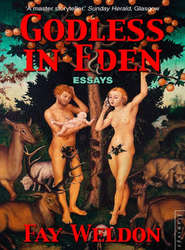По всем вопросам обращайтесь на: info@litportal.ru
(©) 2003-2024.
✖
Mantrapped
Настройки чтения
Размер шрифта
Высота строк
Поля
A home to go to (#litres_trial_promo)
Temptation (#litres_trial_promo)
Home and normality is restored (#litres_trial_promo)
P.S. Ideas, interviews & features… (#litres_trial_promo)
About the author (#litres_trial_promo)
Split Personalities Louise Tucker talks to Fay Weldon (#litres_trial_promo)
LIFE AT A GLANCE (#litres_trial_promo)
FAVOURITE THINGS (#litres_trial_promo)
A Writing Life (#litres_trial_promo)
About the book (#litres_trial_promo)
The Real Me? By Fay Weldon (#litres_trial_promo)
Read on (#litres_trial_promo)
Have You Read? (#litres_trial_promo)
About the Author (#litres_trial_promo)
Praise (#litres_trial_promo)
Also by Fay Weldon (#litres_trial_promo)
Copyright (#litres_trial_promo)
About the Publisher (#litres_trial_promo)
Trisha leaves home (#ulink_00052b2c-039d-5650-b318-2525cbdc0911)
Trisha had been rich and Trisha had been poor and she knew it was better to be rich. Now she was to be poor again.
The mattress Trisha slept upon was the most expensive on the market: she took consolation from that. Madonna had one like it. Trisha bought it after she won the lottery, nine years back. The claims the manufacturers made for it were true. When she woke in the morning her joints were not stiff and she had no trace of back-pain. She might on occasion wake weeping but she did not wake hurting.
Now she was to ache again. There would be no room in her new abode for so large and lavish a bed as hers. She had thought herself so resolved and steady of purpose, so unsentimental, so unattached to belongings, but now suddenly she felt weak at the knees and wanted to cry. She was alone in the world, without even a decent bed or permanent pillow on which to lay her head. Life once had seemed so easy. You did your best and it worked out all right. The advertisement in the catalogue had shown a young woman sitting alone on a bed with a glass of wine sitting beside her on the pink and gold floral fabric of the mattress. It had passed ‘the wine-glass test’, proving how the springs adjusted themselves to sudden changes in the distribution of weight.
That was how life ought to be, glossy and properly worked out for those who had the money.
Now, nine years later, when push had come to shove, and the creditors were banging on the door, and everything had to be sold, she looked at the mattress and doubted that it was even saleable. There is not much of a market for used mattresses in a prosperous society. The suspicion is always there that the previous owner has died upon it and that it would be more auspicious to start afresh. And the mattress, Trisha could see, showed all too much evidence of a hard-living, on-going life, far too much for a potential customer’s comfort. It was stained with the traces of nine years of careless living, flecked by blood and semen, marked by the breaking waters of pregnancy; it was impregnated, if she put her nose to it, with the soft fumes of marijuana and the acrid after-scent of cocaine.
People had got so fussy. Not just about things but about their bodies. Once a woman had been happy to look as God decided. Virtue lay in playing a good hand no matter what cards were handed out at birth. Greasy hair, put up with it. Big nose, large bottom, too bad. Smile and be grateful. Now it was off to the cosmetic surgeon to defy God’s will. Bodies were kept under better control than once they were. They were thinner, cleaner, better exercised, healthier: people of the New Millennium had the energy and will to keep the corners clean. This was a mattress from the Former Age, the old century, and it showed. If a cover had come with the mattress—and at that price it surely should have—she had never bothered to put it on. The help never spoke English, and Trisha wasn’t one to ask and burden servant lives further with extra toil. Sheets were understood in Latvia and Estonia but mattress-covers? She, Trisha, did not have the gift for creating order around her and she was prepared to admit it. In her new life she would try to do better.
In the months after the lottery win she had bought and bought and bought, all the things she had ever done without, to make up for years of too-thin saucepans, too-cheap sheets, badly-stitched clothes, and over-perfumed soap. She had bought the best, and not thought about money, other than to avoid bargains. Now everything had to be sold and would go for a fraction of what she had spent. But the pleasure of the antique Buddha, the double-pile carpets, the cocktail cabinets, the ice-making fridge, the serving table which talked back to you and wiped its own surface clean, the little unauthenticated Picasso sculpture of a bull, had lain in the buying, not the owning. So who cared? The money had run out, and credit too: now she would earn her own living like everyone else. She was not new to penury. She had scraped along for years on benefits and occasional work as an actress. Now she would take a computer course and do temping, forget how much she hated office work, being cooped up. Others managed, so would she. It had been good to win the lottery, good to attract the men who went with it, but it would be good to live honourably once again. The nouveaux riches were lonely; they looked over their shoulders all the time to make sure no one was cheating them, taking advantage, but they tended to look in the wrong direction. Those born rich had it easier, they knew the rules and how to keep them, were trained at their nanny’s knee never to break into capital, never to lend money, to stick to their own class, rules devised over centuries for their protection. It was only recently she had realised what capital was. It was the stuff in the bank which others more secure than she lived on.
But she had her assets. People liked her. She was forty-four but could pass for ten years younger: she had good, long, skinny legs: she was plump-bosomed, large-nosed and smiled easily. Her hair was thick and naturally curly, henna-enriched. She was flexible: she could touch her toes with her hands flat on the floor in front of her. She looked available: she knew that: nothing much she could do about it: the truth was inbuilt: she looked as if a man might only give her but a little push, and she would fall easily back upon the bed and not complain about it. Round-heeled, her mother had called her once, when she was thirteen and had started going out with boys. Other girls were somehow stiffer in the middle, not given to bending: they got given presents, jewellery, flowers. Not Trisha—she always seemed to be the one giving things—little gifts, cards and so on, hoping to please. She looked good in little waisted jackets with fake fur collars. Tarty, her mother complained. So what? Wearing high heels with jeans meant there was never any shortage of men around, and a shortage of men was what Trisha most feared. Or had until the last couple of months. Perhaps she was traumatised, more upset by recent events than she realised: whatever it was, the thought of having a man about appalled her, someone telling her what to do, watching her every move, interfering with her decisions. She wanted her body to herself, while she worked out what to do next. The idea of strange male fingers approaching her flesh, which until lately would have had her instant positive attention, now gave her the shivers.
She knelt beside the mattress and the idea of praying occurred to her. She put her hands together and closed her eyes. ‘Dear God,’ she said, as she hadn’t since she was seven. ‘Help me now in the hour of my need. Forgive me my sins.’ But really she had no idea how she could possibly have sinned. She had only ever done what circumstances required of her, and kept a little back for herself. Wasn’t that allowed?
No voice from God came in reply, only that of the auctioneer’s young assistant. ‘So is the bed to be in the sale or out of it?’ he asked. Trisha got to her feet at once. He would assume she had been examining the mattress: it would not occur to anyone these days that people kneeled by beds and prayed. She hoped he noticed the quality, and overlooked the stains. He spoke through his nose, though that was probably not his fault. He was in the habit of despising others, she could tell. It narrowed the nasal passages. Nothing was ever worth as much as people hoped and it gave him a feeling of superiority. He earned his living dealing in other’s people’s disappointments. He was a tall, pale, stooping young man: how did such a person come to have the job he did? She was in a perpetual state of marvel at the way the new world worked. He had qualifications, she supposed, in Art History. He had been trained to tell a Manet from a Monet, no doubt, but she did not think he would make it in the wide world. He had too little generosity of spirit. Too many planets in the lower half of the astrological chart, as hers were, to rise to great heights. Too long spent handling what amounted to repossession sales—turn up, turn up, knock down prices, everything must go. One person’s bargain is another person’s loss. Wrong end of the market, buster, down here among the totters, the knockers, the hearse-chasers, the hungry end of the dealing trade. Up the top end, Bond Street and the antique trade, and at the bottom, the skip; in the middle, eBay and the car boot sale. Look at this, darling, just right for the baby in a couple of years. What was sold early morning down the wrong end of the Portobello Road for a fiver went for twenty quid at the top, by evening. In the meanwhile the traders helped themselves to a living. Ordinary punters, idle and ignorant, never knew what they were doing: it was their role in life to be ripped off. While the professionals, the lawyers, the accountants, the designers, not to mention the daily help, helped themselves to what was left, and that was before the taxman got the lion’s share. Well, now she didn’t have to worry. It could all go. All the stuff now piled up in the garden and the front rooms, the over-shiny repro furniture, the stacks of unopened fashion magazines, the garden roller no gardener could be bothered to use, the frilly swing seats—she always thought she’d conceived little Spencer in that one—and the mirror and glass serving-trolleys with boule decoration, a snip at £7000—and the only single thing she regretted was the bed, with its used mattress. ‘I haven’t decided,’ she said to the auctioneer. ‘It might come with me.’
‘It won’t fetch much in a sale,’ he said. ‘Mattresses never do. But I could take it off your hands for a fiver. It would clean up. My girl-friend’s only got a futon.’
Perhaps he wasn’t so bad. They were all in the survival game together.
Writer’s note (#ulink_6f1acc70-e7f3-5212-bd6d-a09e520fd1d5)
So far so good. You can start a novel like this. Lottery Winner Faces Hard Times. Rags to riches is better, but riches to rags will do. It is heartening in fiction to watch people making good, but facing up to their just or unjust desserts has its attractions too. I remember thinking this in the days of my frivolity, when I was the BBC’s darling, and anything I could think of to write they would produce, without argument or committee meetings or worry about ratings. In the days when script editors were there to make writers happy and bring them cups of tea, and not tell them what to do, and my income was great—by my standards—even though my debts were often greater. That lasted for fifteen years, on and off, and ended in the mid-Eighties.
Trisha and her mattress (#ulink_3e5c29b7-57fa-5629-8463-9f064b0e1567)
The young auctioneer went off to harangue the men who were trying to manoeuvre a pool table from the so-called rumpus room down the stairs, and had already broken the banisters. Trisha went to the linen cupboard where a sign now said Assorted Linens—£25 and extracted an Egyptian cotton sheet from a packet of six, still wrapped, that had cost her £435 from Harrods, and used it to cover the disgrace of the mattress. Here was a decade’s worth of personal history. At least she’d had some. Many didn’t. Here was the large red wine stain where she had tried the wineglass trick and it had failed. One of the lovers—was it Gregory or Thomasina? Or one of the husbands—was it Alastair or Rollo?—had lunged at her and that had been that. Spoiled, no longer virgin. The bed had been sold on the premise of comfort and hygiene, not the bonus of sexual activity, so she could not take the manufacturers to court under the Trades Descriptions Act. She noted she had begun to see litigation as a way of raising money. She would like to be able to sue God for making her the way she was. See there, a trail of yellowish stains left by little Spencer who as a one-year-old had liked to climb into her bed and sleep there, rather than in his cot, sucking last night’s bottle.
That was in the days before Rollo claimed Trisha was an unfit mother. It was not an accusation easy to refute. She was not fit. Good mothers used mattress-covers which could be easily laundered, they breast fed not bottle fed, did not drink too much, go to bed with women if there were no men available, not even to cure a broken heart. She hoped she was a nice mother, but she knew she was not a good one.
The solution occurred to her. She would leave the bedstead and take the mattress. It was as good a memoir of her life as she was likely to get. She would go easy on herself and not start altogether afresh. The mattress would go with her to her new address in Wilkins Parade, the living room, bedroom and kitchen above a domestic services agency, called for some reason Kleene Machine, where she was now obliged to live. The landlady had promised the flat to her, though there was nothing in writing. The rent was cheap: housing benefit would cover it. The area was just about possible, still with a majority of non-ethnics. She had to face it: nothing was going to turn up in the next couple of hours to save her from the squalor of living above a shop. That kind of thing only happened when you were under forty. No former lover, no knight in shining armour, was going to gallop over the horizon and rescue her. She had no choice but to call up the landlady before she changed her mind, and say, yes, she would take the flat, she would move in at once.
It would be okay. She would make the new place into a love nest, cosy and sweet, she would pick up fabric from charity shops and drape the walls: she would drown the smell of damp and mould with scent. She had at least thirty bottles of expensive scent, all opened, all tried, most discarded. They would come with her in the van in which she would drive away from her old life and begin the new. Of course she would take the mattress; it represented her past. She would live to cavort upon it in style once more. The strength was returning to her legs. They were good legs, not as long as they could be, but shapely. Life after all was a great adventure.
Riches to rags (#ulink_8624a1a5-c263-58de-adc9-135409fbc9f3)
I came to the riches to rags idea in a taxi on my way to a commissioning meeting at the BBC. That was 1985. I was unprepared. I would have to wing it, and did. ‘Well,’ I said, ‘there was this woman living happily in the country when…’ and made it up as I went along. Okay, they said. These days I would need to take along a twenty-page synopsis, fully-illustrated, to such a meeting and the life would have gone out of it before I even began. That was The Heart of the Country, which ended up as a TV mini-series and which I later novelised. Frivolity can be a great asset to a writer: delinquency is part of the calling. I thought it would only really interest recipients of housing benefit in the Shepton Mallet area of Somerset, where I then lived, but it ended up winning the LA Times Fiction Prize. A great many people are very conscious of riches to rags; it is their fear and, more often than you would think, their experience.
There was an auction in that novel, too, when my heroine’s belongings were sold up. Bereft of a husband to protect her, and innocent of the ways of the world, she was thoroughly cheated by the local small businessmen, from the antique dealer to the estate agent to the lawyer. First they slept with her, then they profited by her. Trisha will not be so foolish. She knows only too well which side her bread is buttered.
That auction is vivid in my mind because, having written it, I was there at its filming for TV. If you write enough fiction, you can have trouble telling the difference between what you did in real life and what you wrote, and filming makes both more vivid. The rectangle of charred earth where I once fictionally burned down my own home, in a novel called Worst Fears, written in 1995, is seared painfully into my mind, and the passing of ten years has not muted the pain. I drove past the house the other day and was astonished to see it still standing and was not at all pleased.
Nearly everything you write about, you realise one day, has its roots somewhere in the past. What, for example, is this preoccupation with mattresses? True, this morning I changed my own. Over, end to top, side to side, heavy work. I did it myself without help. I did not want witnesses. There is no mattress-cover. Perhaps I am piling my own housewifely guilt into poor Trisha. I am reluctant to go out and buy a new one: I don’t know what kind of shop stocks such things and I would have to find tape, pen and paper to take the measurements and I am upstairs and they are downstairs—you know how it goes. And besides, I have other more pressing things to think about. Easier to write another paragraph about Trisha’s life.
My mattress, like Trisha’s, is nine years old and expensive. Unlike Trisha’s it is in not too bad a state. But mattresses are not the proper stuff of fiction. Beds are trivial on the page, if not in life. When, after thirty years of marriage, doing what all women are warned not to do (Wronged wife: ‘I want nothing from you, nothing. All I want is my freedom!) I left the matrimonial home, my then husband at least had the grace to give our brass bed away and not share it with his mistress under what used to be our joint roof. I am grateful for that.
Sometimes I wonder who has the bed now—like in that story A Day in the Life of a Penny, which all children used to be required to write and I loved to do and others to my surprise hated. In whose pocket is the penny now? In whose home the bed?
I hope it brought them luck, I daresay it did. Luck stayed with me for perhaps longer than its usual run, and may it do the same for them: I cross my fingers. I also hope that though keeping the bed itself they junked the mattress. It had nearly thirty years of life with us, and heaven knows where it came from before.
We do so much in bed, lying down—if we are lucky, that is—get born, conceive others, die—and if it doesn’t happen in a bed that’s usually bad. Born in a taxi, conceived in an alley, died in an accident—needs must, but bed is best, safe, familiar and dull. Too dull, perhaps, for novels. Fiction is about the exceptional, not the normal. Fiction is focused real life, with the boring bits cut out. Otherwise, just live life, don’t read about it. Let alone write about it. Back to business.
Trisha faces the future (#ulink_12d79bd4-9a89-55ce-99b9-d6799f2c6601)
So Trisha calls Kleene Machine and tells Mrs Kovac, who is the owner of the property, that she will take the flat. Kleene Machine’s shop-front has been recently repainted in deep crimson, lettering in gold. It is not unattractive. The firm charges top prices. It used to be a betting shop. Mrs Kovac hires out domestic and office cleaners from Eastern Europe and farms out the dry-cleaning on a commission basis. Kleene Machine’s little crimson and gold van, driven by Mr Kovac, beetles around the area and is a familiar sight, if a rather surprising one in this mixed area, in which piss-stained, concrete walls and broken windows are still evident. This particular branch of Kleene Machine, an organisation which has so far made good profits by judging the property market and being the first to arrive in up-and-coming areas, was leased by the Kovacs as a concession two years ago. The neighbourhood is becoming popular with the media classes—journalists, film makers, ad men, minor celebrities and so on, who are less frightened of gun crime than the professionals—lawyers, doctors, accountants—and are the foot soldiers of the class war, as they prepare to drive out the riff-raff, ethnics of many varieties, take over and gentrify. The media game in London is to buy property cheap and sell dear by virtue of blessing the area with their presence and their spending power.
The police have gone before, making life uncomfortable for drug-dealers, whores, beggars and the gangs of youths, who, listless at best and depraved at worst, used to hang around Wilkins Square and its environs, bringing down the price of property. Now they cluster a quarter of a mile further out and make life miserable for another set of residents. They’re restless, they didn’t want to go. Wilkins Square has been the province of the uprooted and dispossessed for hundreds of years. Tradition draws them; they drift back, thwarting the police in their attempt to clean up the area. It is touch and go who wins.











